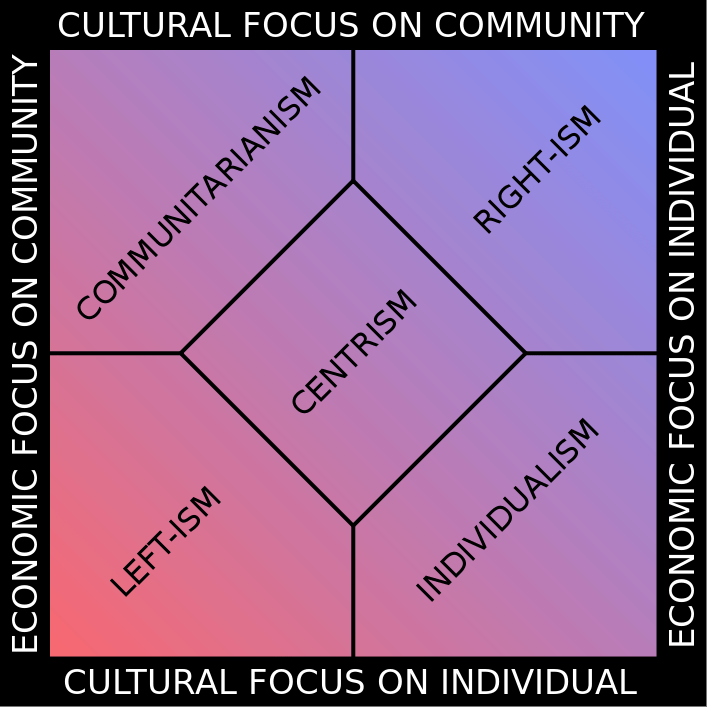Key Difference – Worldview vs Ideology
Worldview and ideology are terms that describe a person’s beliefs and ideals. Worldview refers to how someone perceives and interprets the world, while ideology is a collection of beliefs and ideals that underpin economic or political theories and policies. The primary distinction between worldview and ideology is that ideology is often applied in political and economic contexts, while worldview refers to an individual’s overall perspective on the world.
What is Worldview?
Worldview, in simple terms, is how someone perceives the world. The Oxford dictionary defines worldview as “a particular philosophy of life or conception of the world,” and The American Heritage defines it as “the overall perspective from which one sees and interprets the world.” The term worldview comes from the German word Weltanschauung. A person’s view of critical aspects of the world, such as religion, culture, knowledge, values, and history, is shaped by their worldview. It helps individuals determine what is good, right, rational, beautiful, or valuable. However, one’s beliefs about the world can be either correct or incorrect, or a combination of both. Philosophers Norman Geisler and William describe worldview as “an interpretive framework through which or by which one makes sense out of the data of life and the world.”
What is Ideology?
Ideology can be defined as a set of ideas and beliefs held by a group of people. The Oxford dictionary defines ideology as “a system of ideas and ideals, especially one that forms the basis of economic or political theory and policy,” while The American Heritage defines it as “a set of doctrines or beliefs that are shared by the members of a social group or that form the basis of a political, economic, or other system.” Ideology consists of one’s goals, beliefs, expectations, and motivations, and can include both conscious and unconscious ideas. In political and social studies, ideology refers to a set of principles, ideals, myths, symbols, and doctrines that explain how society should function. Political ideologies address various aspects of society, including education, healthcare, the judiciary system, the economy, social security and welfare, ethnicity, the military, migration and immigration, the environment, trade, and religion.
What is the difference between Worldview and Ideology?
Definition:
Worldview: Worldview is the overall perspective from which one sees and interprets the world.
Ideology: Ideology is a set of ideas and ideals, especially those which form the basis of economic or political theory and policy.
Individual vs Group:
Worldview: Worldview can be the perception of an individual.
Ideology: Ideology is shared by a group of people.
Context:
Worldview: Worldview is concerned with religion and philosophy.
Ideology: Ideology is concerned with economy and politics.
Reference:
Geisler, N. L., Watkins, W. D., & Geisler, N. L. (1989). Worlds apart: A handbook on world views. Grand Rapids, MI: Baker Book House.
Image Courtesy:
“155991” (Public Domain) Pixabay
“Multi-axis political spectrum” By Political-spectrum-multiaxis.png: Guðsþegnderivative work: — cBuckley (Talk • Contribs) – Political-spectrum-multiaxis.png (CC BY-SA 3.0) via Commons Wikimedia
Key Takeaways
- Worldview refers to an individual’s overall perspective on the world, while ideology is a set of ideas and ideals that underpin economic or political theories and policies.
- Worldview can be the perception of an individual, while ideology is shared by a group of people.
- Worldview is concerned with religion and philosophy, while ideology is concerned with economy and politics.
